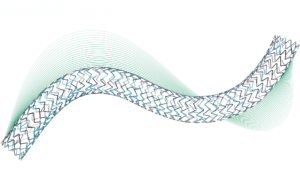
Biotronik has announced the first patient enrolment in the BIONETIC-I study of the safety and efficacy of the Dynetic-35 cobalt chromium balloon-expandable stent system for the treatment of atherosclerotic peripheral arterial disease (PAD) lesions in the iliac arteries. The study will also evaluate the use of the stent system in association with Biotroniks’s Passeo-35 Xeo peripheral dilatation catheter. The first patient was enrolled by investigator Koen Keirse, vascular surgeon at the Tienen Medical Center in Tienen, Belgium.
The prospective, international, multicentre, single-arm, observational study will evaluate treatment of iliac lesions in approximately 159 patients with up to 60-month follow-up. The primary endpoint is major adverse events (MAEs) at 12 months. MAEs include device- or procedure-related death within 30 days post-index procedure, clinically-driven target lesion revascularisation and major index limb amputation up to 12 months post-index procedure.
“I was impressed by the performance of the latest balloon-expandable iliac stent on the market. The cobalt chromium structure is, to me, very important,” said Keirse. “I am sure that the Dynetic-35 stent’s unique characteristics and fantastic size range—including stents up to 78 mm—will be of added value in many cath labs.”
“I am enthusiastic to collect new clinical data to add to the body of literature regarding iliac artery bare-metal stenting, as we have not had new data in this field for some time,” added principal investigator Marianne Brodmann, head of the Clinical Division of Angiology, Department of Internal Medicine at the Medical University Graz in Graz, Austria.
The next-generation Dynetic-35 iliac stent system, which was launched in the EU and other CE mark-accepting countries last year, is 6Fr compatible across the entire size matrix, and is indicated for the treatment of de novo or restenotic lesions in the iliac arteries.










